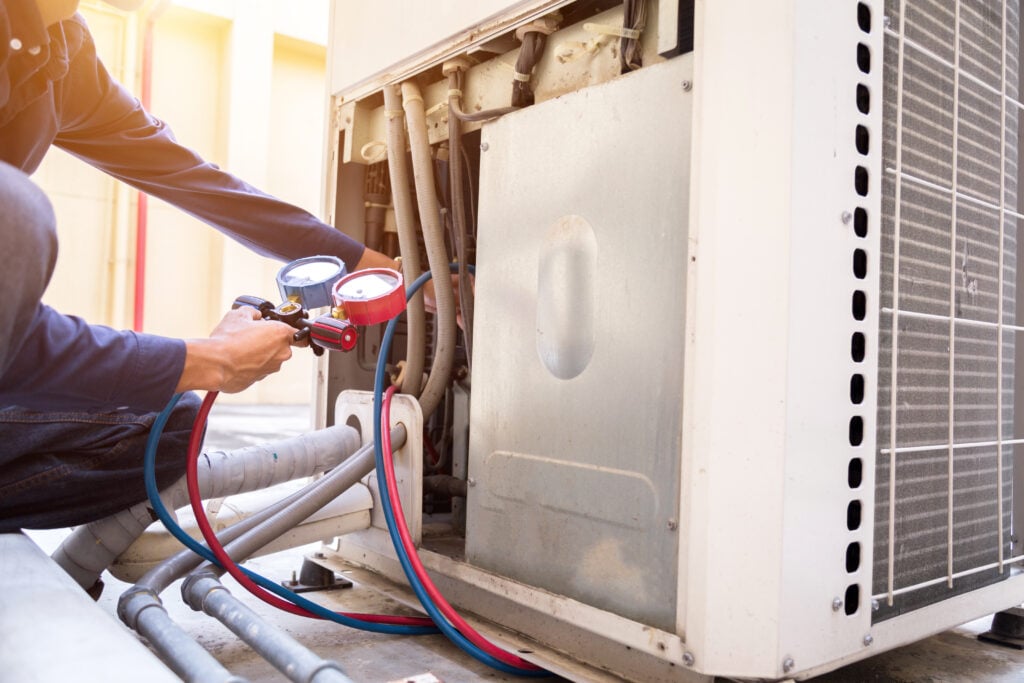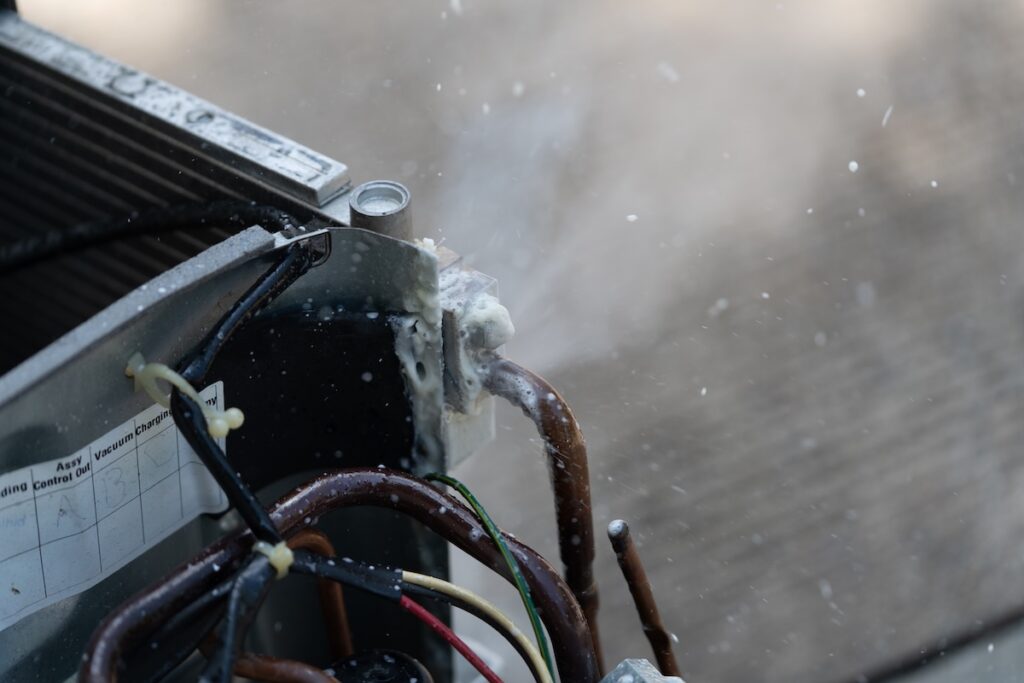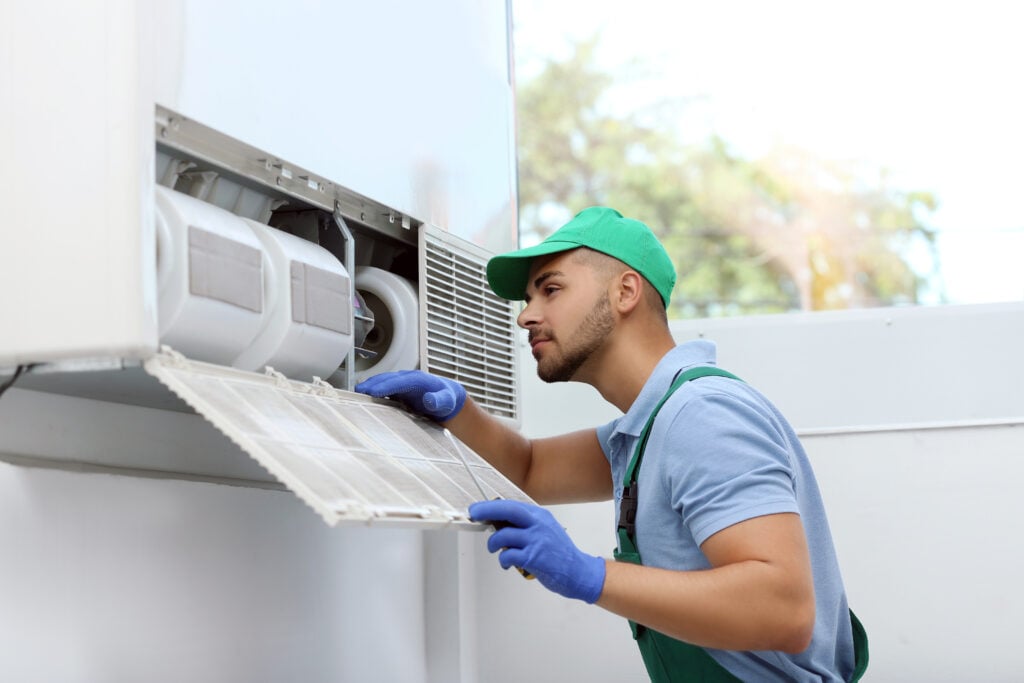7 Common Commercial HVAC Repair Issues
For property managers and business owners, keeping a building’s HVAC system running is about more than comfort—it’s about productivity, safety, and protecting the bottom line. When problems arise, delays can mean downtime, unhappy tenants, or even health risks. That’s why understanding the most frequent commercial HVAC repair issues is essential. From minor inconveniences to major system breakdowns, knowing what to look for helps you respond quickly and keep operations on track. If you’re ready to take preventive action, you can explore commercial HVAC services tailored to businesses of every size.
This guide will walk through why HVAC reliability is critical, the most common repair problems, and how to avoid costly downtime.
Here’s what you’ll learn:
- Why commercial HVAC repair impacts comfort, cost, and safety
- 7 common issues commercial property owners face
- FAQs about commercial HVAC systems and service timelines
- Cost, maintenance, and decision-making tips for long-term efficiency
🏬 The Importance of Commercial HVAC Repair

Unlike residential systems, commercial HVAC units are larger, more complex, and handle heavier workloads. A malfunction doesn’t just inconvenience a few people—it can disrupt entire buildings. Even a small issue can lead to uncomfortable indoor conditions, productivity loss, or tenant complaints that affect lease renewals. Business continuity depends on reliable temperature control, especially in industries where climate is tied to operations, such as healthcare, hospitality, or data management.
Here’s why fast repair and proactive care are essential:
- Employee productivity: Comfortable environments improve focus and morale, while extreme temperatures lead to decreased performance.
- Tenant satisfaction: In multi-tenant properties, reliable HVAC is key to retaining long-term leases.
- Equipment protection: Sensitive equipment like servers or manufacturing machinery often requires precise climate control.
- Financial savings: Small repairs caught early prevent expensive emergency calls and extended downtime.
🛠️ 7 Common Commercial HVAC Repair Issues
Commercial property owners should recognize these frequent problems. Spotting them early makes repairs faster and less costly.
1. Clogged or dirty air filters
Filters trap dust and debris, but when neglected, they block airflow and strain the system.
- Reduced air quality irritates employees and customers
- Units overheat, leading to shutdowns
- Simple filter changes can prevent expensive failures
2. Refrigerant leaks

Cooling systems rely on refrigerant to function properly. Low levels mean trouble.
- Signs include warm air blowing, frozen coils, or hissing noises
- Leaks reduce efficiency and increase energy costs
- Professional repair is required to recharge and seal leaks
3. Faulty thermostats and controls
Commercial buildings often use advanced control systems.
- Incorrect calibration leads to uneven temperatures
- Faulty wiring or sensors cause frequent cycling
- Upgrading to smart controls can improve reliability and savings
4. Blower motor or fan failures
Fans are critical for moving conditioned air throughout the building.
- Strange noises, weak airflow, or complete stoppage signal motor issues
- Overheating and poor lubrication are common causes
- Repairs may require motor replacement to restore proper airflow
5. Drain line clogs and water leaks
Condensation drains remove moisture from the air.
- Clogged drains cause water pooling, mold growth, or ceiling damage
- Overflow can trigger safety switches that shut down the system
- Regular cleaning prevents costly water damage repairs
6. Electrical problems
Commercial systems rely on complex electrical components.
- Faulty capacitors, breakers, or wiring can shut down equipment
- Intermittent power issues often cause the unit to short-cycle—a disruptive failure known as why is my air conditioner constantly switching on and off.
- Requires professional diagnosis to avoid safety risks
7. Worn belts and bearings
Mechanical wear and tear is inevitable in large, high-use systems.
- Squealing or grinding noises often indicate belt or bearing problems
- Left unchecked, minor wear leads to major breakdowns
- Preventive maintenance reduces downtime and replacement costs
🤔 Commercial HVAC FAQs
Commercial property owners often have unique concerns about system repairs. Here are clear answers to common questions:
- How often should commercial HVAC systems be serviced? At least twice per year—spring for cooling prep and fall for heating. High-use systems may need quarterly service.
- How long do commercial HVAC units last? With proper care, 15–20 years is typical, though high-capacity systems may need earlier replacement.
- How fast can repairs usually be completed? Simple fixes like filter changes may be immediate, while complex issues (compressors, motors) may take several hours or require parts ordering.
- Can repairs be done during business hours? Yes, many HVAC companies schedule work around your business operations to minimize disruption.
- Are commercial HVAC repairs more expensive than residential? Generally yes, due to system size, complexity, and the labor required. But preventive maintenance reduces long-term costs.
- Are commercial HVAC repairs more expensive than residential? Generally yes, due to system size, complexity, and the labor required. But preventive maintenance reduces long-term costs; for instance, learning how to clean AC drain line can prevent a major, expensive water-related breakdown.
💡 Maintenance & Cost Considerations

Beyond repairs, smart planning keeps your system efficient and avoids emergencies. Proactive property managers view maintenance not as a cost but as a safeguard against revenue loss. A building with a strong HVAC strategy can even market its efficiency to attract and retain tenants.
Even minor electrical strain can be a red flag. For many commercial property owners, problems start with voltage drops that manifest as flickering lights when the unit cycles. To understand the connection between these power fluctuations and potential AC problems, explore our guide on why lights flicker when the AC turns on.
Average repair cost ranges
- Minor repairs (filters, belts, drain cleaning): $200–$500
- Moderate repairs (motors, sensors, refrigerant recharge): $500–$1,500
- Major repairs (compressors, control boards, heat exchangers): $2,000+
Preventive maintenance tips
- Schedule seasonal inspections twice a year
- Replace filters monthly in high-use buildings
- Keep outdoor units clear of debris and ensure proper airflow
- Log performance metrics to track efficiency over time
When to repair vs. replace
| Factor | Repair | Replace |
| System age | Less than 10 years | Over 15 years |
| Cost of repair | Less than 30% of replacement | More than 50% of replacement |
| Frequency of breakdowns | Rare | Frequent, disruptive |
| Energy efficiency | Still efficient | Energy bills steadily rising |
Signs it’s time to call a pro
- Sudden spikes in energy bills
- Persistent hot or cold spots in the building
- Strange noises or odors during operation
- Water pooling or visible leaks around units
- Emergency shutdowns during peak demand
🚀 Keep Your Business Running With Reliable HVAC
Commercial HVAC repair isn’t just about fixing broken equipment—it’s about protecting your property investment, keeping tenants happy, and ensuring smooth operations. By recognizing common issues early and scheduling regular maintenance, you’ll avoid costly downtime and extend the life of your system. Reliable heating and cooling isn’t just a utility—it’s a business advantage.
If your building is experiencing HVAC issues or it’s time for preventive service, contact us today to schedule a consultation and keep your commercial property running at peak performance.
